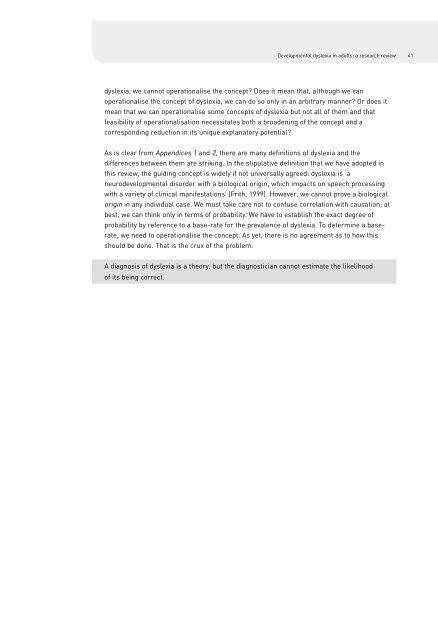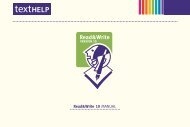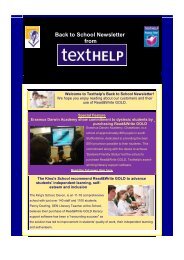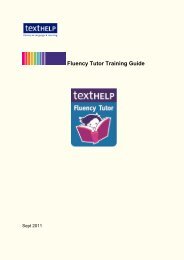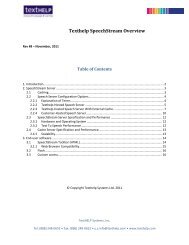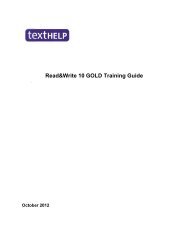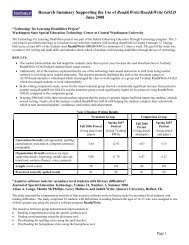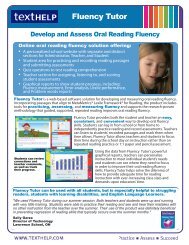01 NRDC Dyslexia 1-88 update - Texthelp
01 NRDC Dyslexia 1-88 update - Texthelp
01 NRDC Dyslexia 1-88 update - Texthelp
Create successful ePaper yourself
Turn your PDF publications into a flip-book with our unique Google optimized e-Paper software.
Developmental dyslexia in adults: a research review 41<br />
dyslexia, we cannot operationalise the concept? Does it mean that, although we can<br />
operationalise the concept of dyslexia, we can do so only in an arbitrary manner? Or does it<br />
mean that we can operationalise some concepts of dyslexia but not all of them and that<br />
feasibility of operationalisation necessitates both a broadening of the concept and a<br />
corresponding reduction in its unique explanatory potential?<br />
As is clear from Appendices 1 and 2, there are many definitions of dyslexia and the<br />
differences between them are striking. In the stipulative definition that we have adopted in<br />
this review, the guiding concept is widely if not universally agreed: dyslexia is ‘a<br />
neurodevelopmental disorder with a biological origin, which impacts on speech processing<br />
with a variety of clinical manifestations’ (Frith, 1999). However, we cannot prove a biological<br />
origin in any individual case. We must take care not to confuse correlation with causation; at<br />
best, we can think only in terms of probability. We have to establish the exact degree of<br />
probability by reference to a base-rate for the prevalence of dyslexia. To determine a baserate,<br />
we need to operationalise the concept. As yet, there is no agreement as to how this<br />
should be done. That is the crux of the problem.<br />
A diagnosis of dyslexia is a theory, but the diagnostician cannot estimate the likelihood<br />
of its being correct.


